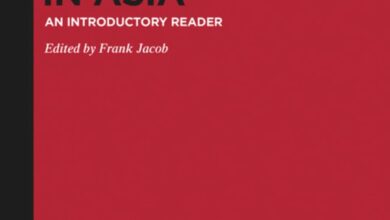BANGLADESH – The Border of Tension – Monday 08 December 1975 – Time Magazine
BANGLADESH – The Border of Tension
Monday 08 December 1975
Time Magazine
MuktiJuddho e-Archive Collection
Relations between Dacca and New Delhi have been cool since the assassination last August of Bangladesh’s founder-president, Sheik Mujibur Rahman, in a military coup. India had strongly backed Sheik Mujib in Bangladesh’s war for independence and was distinctly unhappy about the pro-Pakistan sympathies of the so-called seven majors who overthrew him. Although the majors were ousted last month in a bewildering series of coups and countercoups (TIME, Nov. 17), Bangladesh’s new military rulers, headed by Major General Zia-Ur Rahman, have apparently carried on their predecessors’ policy of less dependence on India and closer ties with Pakistan and China.
Last week India had further cause for annoyance with Bangladesh. India’s High Commissioner, in effect ambassador, to Dacca, Samar Sen, was shot in the back and seriously wounded by six young men who had posed as visitors to his office. Bangladesh police returned the fire, killing four of the attackers and wounding two.
Reacting angrily. New Delhi charged that an “insidious and mischievous anti-Indian propaganda campaign” by “reactionary groups” had recently been carried on in Bangladesh. Two weeks before the attack on Sen, a live grenade had been found on the grounds of his residence. Dacca expressed “deep regret and concern” over the attack and blamed “antistate elements” who had sought to kidnap Sen in order “to damage the existing bond of friendship and cordiality between India and Bangladesh.”
Rebellious Tribesmen. Nonetheless, the incident was bound to complicate relations between the two subcontinent neighbors, who share a porous 1,500-mile border. In recent weeks there have been rumors in Dacca — vehemently denied in New Delhi — of border incursions by Indian troops. One Dacca version is that India wants to stir up unrest among Bangladesh’s 10 million Hindus, thus encouraging them to flee to India as they did in 1971. India, according to this scenario, would use the ensuing chaos as a pretext for launching a full-scale invasion. Foreign diplomats in Dacca regard the rumor as implausible.
At the same time, there are fears in India that China, which has given arms and guerrilla training to rebellious Naga and Mizo tribesmen in eastern India, may be tempted to do the same for Bengali Maoists, thus creating tension along India’s long eastern border.
Aside from the attack on Sen, reported TIME’s Richard Bernstein, who visited Bangladesh last week, Dacca appeared relatively calm. “Martial law continues — and probably will for months,” cabled Bernstein. “Major General Zia-Ur, who dissolved Parliament, now says elections will not be held until 1977. Strategic points like the Bangladesh radio station are sealed off with barbed-wire fences and guarded by small groups of rather bored soldiers armed with M-1s and machine guns. In the countryside, sporadic gunfire can be heard at night, and there are reports of continued fighting between pro-and anti-Mujib factions in the army. The political violence has unleashed a wave of bloodletting among rival satraps in rural areas, who see the confusion as an opportunity to settle old vendettas. For the rest of the people, there is an obvious dread of some calamity just around the corner, but nobody can say exactly what it will be.”

